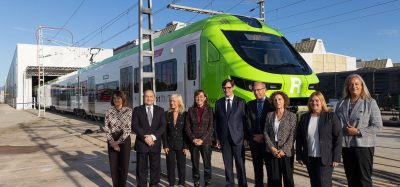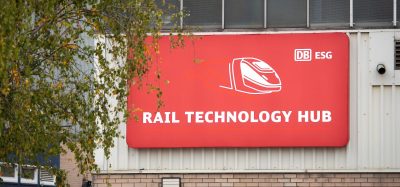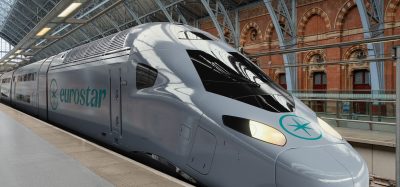Preparing to face future challenges
Posted: 26 September 2009 | | No comments yet
In October 2006, the Portuguese government issued the Strategical Guidelines for the railway sector, which aims at empowering the railway competitive advantages in terms of performance and efficiency in the frame of the transportation system and enhance the sector’s sustainability as a contributor to the economical development and to the social and territorial cohesion.
In October 2006, the Portuguese government issued the Strategical Guidelines for the railway sector, which aims at empowering the railway competitive advantages in terms of performance and efficiency in the frame of the transportation system and enhance the sector's sustainability as a contributor to the economical development and to the social and territorial cohesion.
In October 2006, the Portuguese government issued the Strategical Guidelines for the railway sector, which aims at empowering the railway competitive advantages in terms of performance and efficiency in the frame of the transportation system and enhance the sector’s sustainability as a contributor to the economical development and to the social and territorial cohesion.
In the same document, the Portuguese authorities have established global objectives to be reached through sustainable financial models, improvement of the accessibility, the mobility, the environmental sustainability, the energetic efficiency, the promotion of investigation and the development and innovation, so as to reach, until 2015, an increase of 10% in the number of passengers and of 70% in freight.
Contemplating this, CP – Comboios de Portugal, E.P.E.1 – has defined its priorities and among them is the renovation of the fleet, combined with the necessities to make the motive power compatible with the technical specifications, as well as with the current modernisation investments to be performed in infrastructures, and also to provide an answer to dynamics.
It was in this context that the Portuguese government has authorised CP to launch an international public procurement to the acquisition of a motive power aiming at the modernisation of its fleet, expected to be delivered by 2013, which will imply an investment of approximately €400 million. After the first step, the four contestants selected are preparing the proposals to present them to the jury for appreciation.
Therefore, and for the period until 2013, according to the procurement launched last May, 74 motive power units will be acquired, making up a total sum of €370 million, as base supply, distributed as follows:
- 25 multiple-units for the regional service, making up a total sum of €125 million
- 36 bi-current electric multiple-units for the urban service in the Cascais line, making up a total sum of €180 million
- 8 electric multiple-units for the urban service in Porto, making up a total sum of €40 million
- 5 electric multiple-units for the urban service in the Sado line, making up a total sum of €25 million
As optional supply, the launched procurement also contemplates the acquisition of 28 more motive power units, implying a total sum of €140 million, distributed as follows:
- 8 electric multiple-units for the urban service in Porto, making up a total sum of €40 million (necessary to deal with the predicted increase of demand in that region)
- 15 electric multiple-units for the urban service in Lisbon, making up a total sum of €75 million, to deal with the predicted increase of demand in the region, namely by building new infrastructures and increasing their capacity
- 5 diesel multiple-units for the long course service, making up a total sum of €25 million, to deal with the increase of demand and with the strategy to substitute the locomotive and carriage trains by motors
Thus, considering the optional supplies of this motive power, the total investment of these orders will imply for CP, at the current cost rates, an investment of approximately €500 million, which does not include price reviews nor the acquisition of strategical spare park pieces.
These investments in the renewal of the motive power fleet of CP are essential to the development of the corporation’s main activity, made a priority due to the obsolescence state of some of the material to replace, with unpredictable maintenance costs, but certainly of a higher total sum considering the frequency of the annoying malfunctions.
At stake is also the pursuit of a measure that will allow reaching set levels in the promotion of the welfare of our clients and contribute in environmental terms, not only nationally but also internationally, to the goal set by the Kyoto Protocol and also by the commitment assumed by the whole railway sector, namely at an European level, to an average 30% cut in specific emissions of CO2 from rail traction over the 1990-2020 period.
This is one of the most important parts in the medium term change we intend for CP, as a consequence of the alterations that have been taken in the last years and that have allowed to invert negative evolving tendencies to the company’s operational results and to improve the performances reached with our clients.
With this modernisation of our passenger train fleet, which follows the already conquered acquisition of new rolling stock for freight as well as the assimilation of new intervention forms in the market, or the functional process reorganisation, we will be more prepared to face the future challenges and to consolidate the importance of the railway in the context of all the transportation sector.
Reference
- Portuguese Railways, P.C. (Public Corporation)
Global Railway Review Autumn/ Winter Issue 2025
Welcome to 2025’s Autumn/ Winter issue of Global Railway Review!
The dynamism of our sector has never been more apparent, driven by technological leaps, evolving societal demands, and an urgent global imperative for sustainable solutions.
>>> Read the issue in full now! <<<







